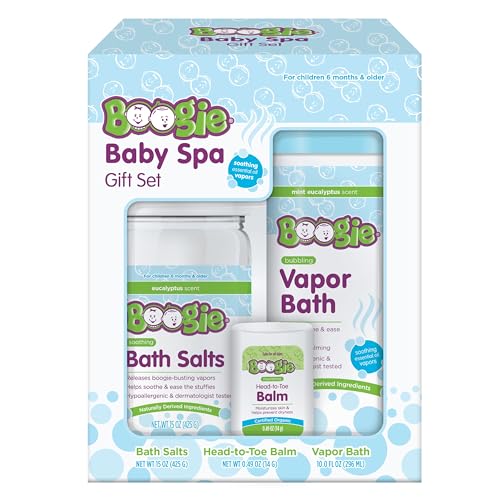As parents, we often find ourselves facing challenges when it comes to our newborns' well-being, and one common concern is their bowel movements.
Ensuring that your little one is comfortable and regular in this aspect is vital for their health and your peace of mind.
In our guide, we'll walk you through practical steps to help your newborn poop easier, offering insights and solutions that can make a significant difference in your baby's comfort.
Join us as we explore effective strategies to navigate this essential aspect of newborn care.
Key Takeaways
- Breast milk or correct formula ratios aid in softer stools
- Use gentle techniques like massages or warm baths
- Consult healthcare provider before trying remedies
- Watch for signs of constipation for baby's comfort

Weleda Baby Tummy Oil (50ml)
WELEDA Baby Tummy Oil 1.7 OZ
As an affiliate, we earn on qualifying purchases.
As an affiliate, we earn on qualifying purchases.
Understanding Newborn Constipation
Understanding newborn constipation is vital for parents to guarantee their baby's well-being. While it's rare in breastfed infants due to the natural laxatives in breast milk, formula-fed babies might experience constipation if the formula-to-water ratio is incorrect. Introducing new formula brands, diluting formula milk, or adding solid foods too early can also lead to constipation issues in newborns. To alleviate discomfort, gentle methods like warm baths, tummy massages, and leg exercises can aid in relaxing the baby's bowel movements.
It is important to refrain from giving newborns laxatives without consulting a healthcare provider. Ensuring that infants have adequate fluid intake is key to maintaining healthy bowel movements. If a baby appears constipated, offering a warm bath or engaging in some tummy massage techniques can often provide relief. However, if constipation persists, seeking medical advice is advisable to address any underlying concerns promptly. By understanding the causes and remedies for newborn constipation, parents can play an active role in supporting their baby's digestive health.

Boogie Spa Kit, Includes Boogie Kids Bath Salts, Eucalyptus, 15 oz (Pack of 1) Vapor Bath 10 Fl oz (Pack of 1) Chest Rub Stick 0.49 oz (Pack of 1)
BABY SPA GIFT SET TO HELP RELAX & EASE CONGESTION: The Boogie Baby Spa Gift Set includes essential…
As an affiliate, we earn on qualifying purchases.
As an affiliate, we earn on qualifying purchases.
Identifying Signs of Constipation

To recognize signs of constipation in newborns, observe for hard or pellet-like stools as a common indicator, along with straining during bowel movements, especially if accompanied by crying. Here are some key signs to look out for:
- Hard Stools: Notice if your baby's bowel movements are firmer than usual, which may indicate constipation.
- Straining and Crying: If your little one seems to be having difficulty passing stools and is crying during the process, it could be a sign of constipation.
- Infrequent Bowel Movements: Keep track of your baby's usual bowel movement pattern. A decrease in frequency might signal constipation.
- Diet Changes: Changes in your infant's diet, such as switching from breastmilk to formula, can impact bowel movements and lead to constipation.
To pay attention to these signs to guarantee your baby's health and comfort. If you notice persistent constipation, seek pediatric advice for appropriate constipation remedies or infant diet changes to alleviate your baby's discomfort.

Frida Baby Windi Gas Passer, Baby Gas Relief, Made in USA, 100% Natural, Safe & Effective Instant Relief for Babies & Infants, 10ct
INSTANT BABY GAS RELIEF: Say goodbye to gassy grimaces with our ingenious hollow tube that works like magic…
As an affiliate, we earn on qualifying purchases.
As an affiliate, we earn on qualifying purchases.
Techniques for Easing Discomfort
For parents seeking ways to alleviate their newborn's discomfort from constipation, utilizing gentle massage techniques can help promote bowel movements and offer relief. Gently massaging your baby's tummy in a clockwise direction can aid in stimulating their digestive system and easing constipation.
Engaging in bicycle leg movements with your baby not only provides a bonding opportunity but also helps to stimulate their bowels, potentially easing their discomfort. Offering warm baths to your baby can relax their muscles and make it easier for them to pass stool comfortably.
Using a rectal thermometer with petroleum jelly can also be effective in triggering a bowel movement in infants. However, it's important to consult with a healthcare provider before trying any remedies or techniques to make they're safe and appropriate for your newborn's specific situation.
Your baby's well-being is paramount, and seeking professional guidance is always recommended when dealing with constipation issues.

Folding Pedal Exerciser, Mini Exercise Bike Under Desk Bike Foot Pedal Exerciser, Foot Hand Cycle Portable Peddler Machine Bicycle Exerciser Arm Leg Exerciser While Sitting (Silver)
【Arm & Leg Mini Exercise Bike】AGM pedal exerciser can be used for arms and legs exercises to improve…
As an affiliate, we earn on qualifying purchases.
As an affiliate, we earn on qualifying purchases.
Adjusting Feeding Practices
Are you aware of how adjusting feeding practices can greatly impact your newborn's bowel movements and overall comfort? When it comes to feeding your baby, making the right choices can make a significant difference in preventing constipation and ensuring their well-being.
Here are some key points to take into account:
- Breastfed babies: Breast milk contains natural laxative properties that can help regulate your baby's bowel movements, leading to softer and more frequent stools.
- Formula-fed babies: Formula-fed infants may have bulkier stools, so it's important to maintain the correct formula-to-water ratio to prevent constipation.
- Avoid dilution: Refrain from diluting formula milk or introducing solid foods too early, as this can lead to digestive issues and constipation in newborns.
- Consult a healthcare provider: If you're unsure about the right feeding practices for your baby, seeking guidance from a healthcare provider can provide personalized recommendations to promote regular and comfortable bowel movements.
Seeking Professional Guidance
If you're facing challenges with your newborn's constipation, seeking professional guidance from a pediatrician or healthcare provider is vital to address any concerns effectively.
When your child has bowel movement issues, involving a medical expert who specializes in infants and children's health care is necessary. Your health care provider can offer tailored solutions and treatment options based on your baby's individual needs.
If your baby may be constipated despite trying home remedies or dietary adjustments, it's time to call your baby's healthcare provider for personalized advice. Professionals can conduct thorough assessments to determine any underlying causes of your baby's constipation, ensuring proper management.
Additionally, seeking medical guidance is crucial if your baby experiences severe symptoms like blood in stool, vomiting, or persistent discomfort. In some cases, healthcare providers may recommend remedies like glycerin suppositories or adjusting feeding practices, such as introducing barley cereal.
Frequently Asked Questions
How Can I Help My Newborn Poop Better?
We can help our newborn poop better by ensuring they are well-hydrated, receiving appropriate formula or breast milk, and engaging in gentle tummy massages or leg exercises. Consulting a healthcare provider is important for tailored advice.
How Do I Stimulate My Baby to Poop With Q Tips?
We gently stimulate our baby's rectum with a lubricated Q-tip using a circular motion. This helps relax the anal sphincter and encourages bowel movements. It's important to be cautious and gentle to avoid discomfort.
What Are the Pressure Points to Help a Newborn Poo?
We've got your back, revealing the precious spots to help your little one find relief. Applying gentle pressure at key areas like the lower abdomen, navel, lower back, and feet can ease newborn constipation.
Can I Give My 2 Week Old Apple Juice for Constipation?
No, it's not recommended to give a 2-week-old apple juice for constipation. Opt for breast milk or consult a healthcare provider. It's essential to prioritize proper hydration and nutrition for your newborn's well-being.
Conclusion
Dealing with newborn constipation can be overwhelming, but with the right guidance and support, you can help your little one poop easier. Remember, seeking professional advice is key to ensuring your baby's well-being.
Don't hesitate to reach out to healthcare professionals if you have any concerns. Your baby's comfort and health are our top priorities. Let's work together to keep them happy and healthy.









